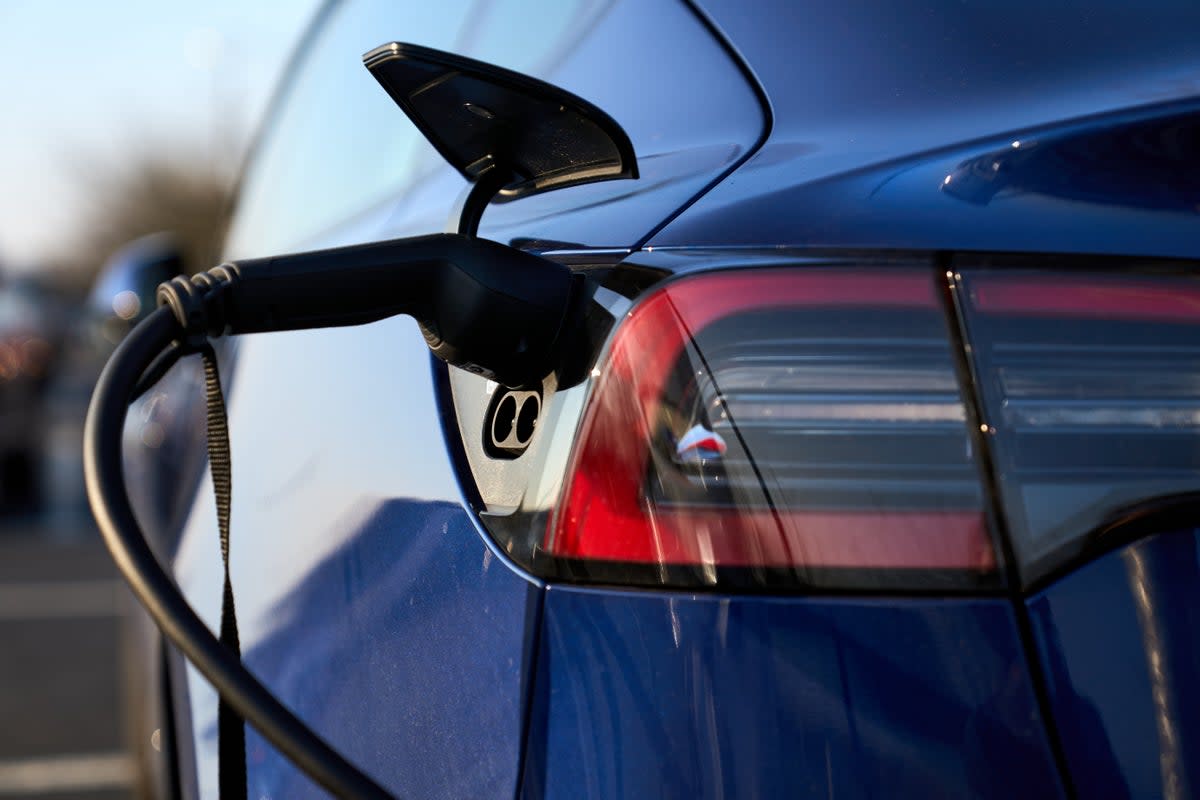Plug It In: E-cars ‘crucial to hit net zero as drivers refuse to walk or cycle’

Electric cars will be vital to London achieving its “net zero” carbon targets because of the reluctance of drivers to walk or cycle, according to a leading transport expert.
David Metz, a “guru” in understanding how people travel, said encouraging the switch from petrol and diesel to electric was the only realistic way of eradicating toxic exhaust emissions from vehicles.
In a new book, he said car travel had quickly returned to “normal” levels as lockdown eased – and warned that, without “additional incentives”, the public was “unlikely to accept less access to the people and places we have become used to”.
Mr Metz, honorary professor in the Centre for Transport Studies at University College London, told the Standard: “It’s unlikely there will be enough behavioural change.
“We are unlikely to get many people out of their cars on to bikes. If we want to decarbonise, we are going to be reliant on technology.”
The said cities such as Copenhagen, which has an extensive network of cycle routes, showed the difficulty of getting people out of their cars.
In the Danish capital, an increase in cycling has been accompanied by a fall in public transport use rather than in car use.
In the book, Good to Go? Decarbonising Travel After The Pandemic, he writes: “The experience of the pandemic has shown that large changes in travel behaviour are possible when they are necessary to protect health, but these will not persist in the longer term to an extent that would make a significant impact on the existential problem of climate change.
“Besides, 80 per cent of carbon emissions from UK car journeys arise from trips of more than five miles, which means that the scope for carbon reduction by switching to cycling is quite limited.”
Electric cars are soaring in popularity among London motorists, and fully electric or plug-in hybrids now account for more than half of new car sales in the capital. More Londoners are cycling but weekday Tube and bus journeys remain well below pre-pandemic levels.
Mr Metz said: “The pandemic has been a very interesting experiment in seeing how much less we could travel. Cars rebounded fastest because they felt safe.
“The scope for using the car less is not that great. Cycling and walking are not that attractive a set of alternatives for most people.
“You can get people off the buses and on to bikes, which are probably no slower than congested traffic. But it’s harder to get people out of their cars, even in a small compact city like Copenhagen.
“Amsterdam is quite like Copenhagen. What we don’t find is any European city with high levels of both walking and cycling and public transport use.”
Mr Metz, who lives in Tufnell Park, gets around town by bike and public transport and has a 2004 Fiat Punto – which is Ulez-compliant - for the “odd trip out of London or across the suburbs”.
He said the demise of petrol and diesel vehicles would require a new form of pay-per-mile charge, in order to maintain Government tax revenues.
He said this should be delayed until the cost of electric vehicles fell to that of petrol and diesel cars, and proposed utilising the congestion charge’s technology.
“At the moment, it’s a fixed charge [£15] for entering the zone,” he said. “We should migrate the technology to a smartphone app, with the smartphone connected to a driver’s bank account.
“You could incentivise the switch to the app by offering a discount on the standard daily charge, then explore options to flex the charge instead of a fixed daily charge.
“Provided the charge was capped at the fixed daily charge - like the Oyster card - that would probably make it publicly acceptable. When you have got that working in other cities you have the basis for a national charge.”

 Yahoo News
Yahoo News 
